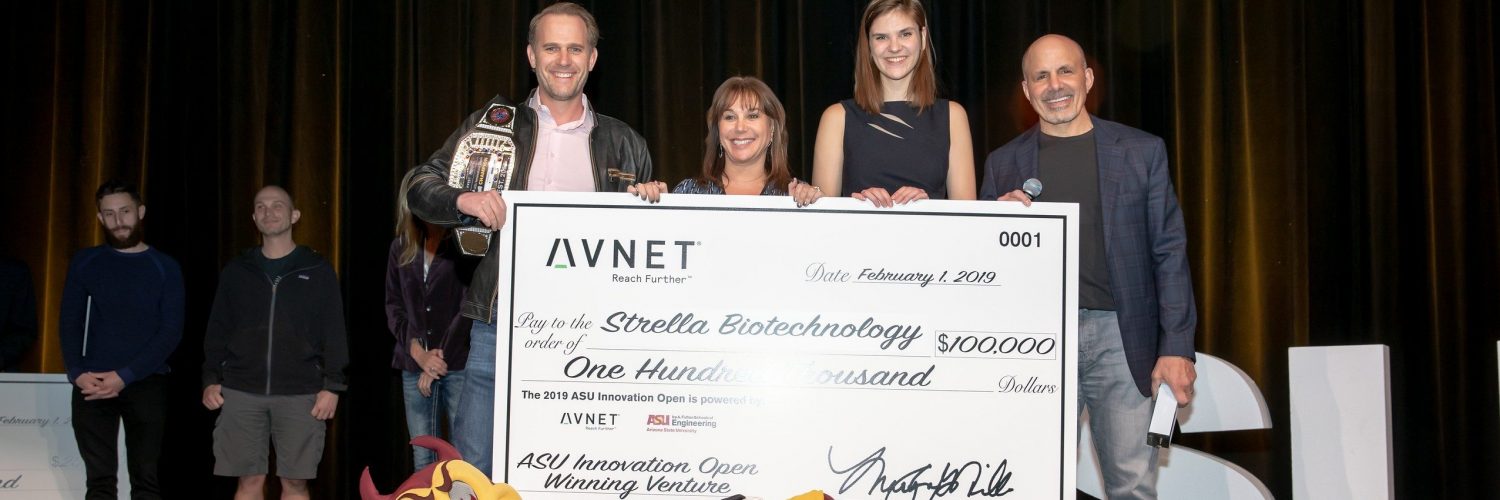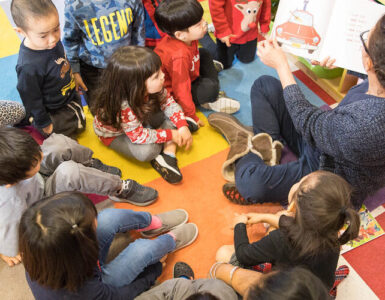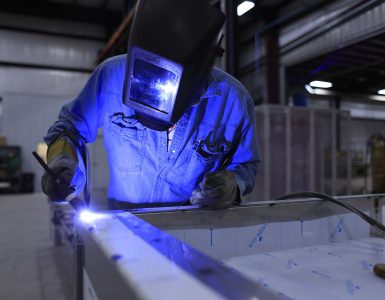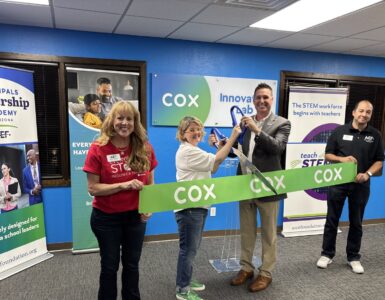A student who invented a solution to reduce the world’s food spoilage won the $100,000 grand prize at the third annual Arizona State University Innovation Open (ASUio).
Katherine Sizov, a senior at the University of Pennsylvania and the founder of Strella Biotechnology, won the grand prize for her biosensor invention that detects exactly when produce is ripe and ready to be sold.
The contest, which is the largest student venture competition in the Southwest, rewards entrepreneurs who find solutions to the world’s top challenges. Phoenix-based Avnet and ASU’s Ira A. Fulton Schools of Engineering sponsored the competition.
Sizov initially seized on the biotech idea to save apples. The technology is already saving millions of apples a year from spoilage.
“I like making tech that’s hands-on, and I think that’s the future of the world,” said Sizov, who intends to use the $100,000 prize to make more of the devices.
Sizov’s biosensing platforms measure fruit ripeness by calculating ethylene gas production. This provides data to packers and distributors to reduce food waste and increase fruit quality. The technology is already in use by apple packers in Washington and Pennsylvania.
Strella Biotech was one of five teams in the final round of the ASU Innovation Open.
The other four were:
• Soundskrit captured second place with a new kind of multidirectional microphone that significantly improves audio capture in cell phones.
• Infinite Cooling invented a water-capture technology that could save power plants more than a million dollars a year and help them use less water. The team met with officials at Palo Verde Nuclear Power Plant last week to discuss the technology.
• SoleMate Solutions created a shoe insole for people who are rehabilitating after orthopedic surgery. The medical device, which measures weight applied and provides real-time feedback, will undergo clinical trials this year. The goal is for the device to reduce recovery time and prevent complications.
• Cloud Agronomics devised a remote-sensing technology to reduce food waste by better predicting crop diseases. The team’s algorithm measures the light refracted from crops captured on ultrahigh-resolution images taken from planes to detect crop diseases long before the human eye can see them.
Kyle Squires, dean of the Fulton Schools, said the competition is another sign that Phoenix metro is becoming a technology and entrepreneurship hub.
The annual competition recognizes forward-thinking Internet of things (ioT) technologies by student engineers. IoT is the network of devices such as vehicles, and home appliances that contain electronics, software, actuators, and their connectivity to the internet.
Avnet, that donated the $100,000, also offers their global design and engineering expertise to the grand prize winner to optimize their solution.
“Each finalist exemplifies the creativity, talent and initiative that is at the core of both the ASU Innovation Open and the entrepreneurial spirit that is so prevalent in technology,” said Bill Amelio, CEO of Avnet, one of the world’s largest global technology solutions providers.
















Add comment